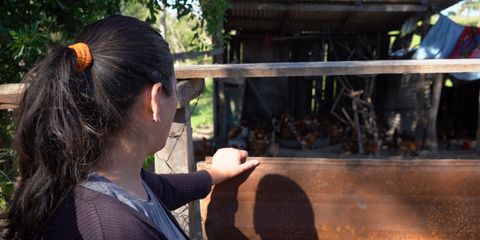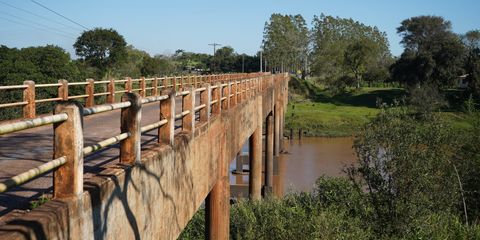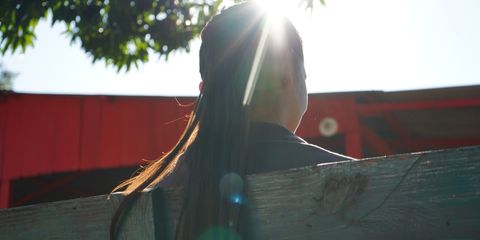Despite facing significant hardships in her life, Ana demonstrated remarkable resilience and determination. She emerged as an educator with a strong commitment to ensuring that children from indigenous communities do not endure the same challenges she faced.
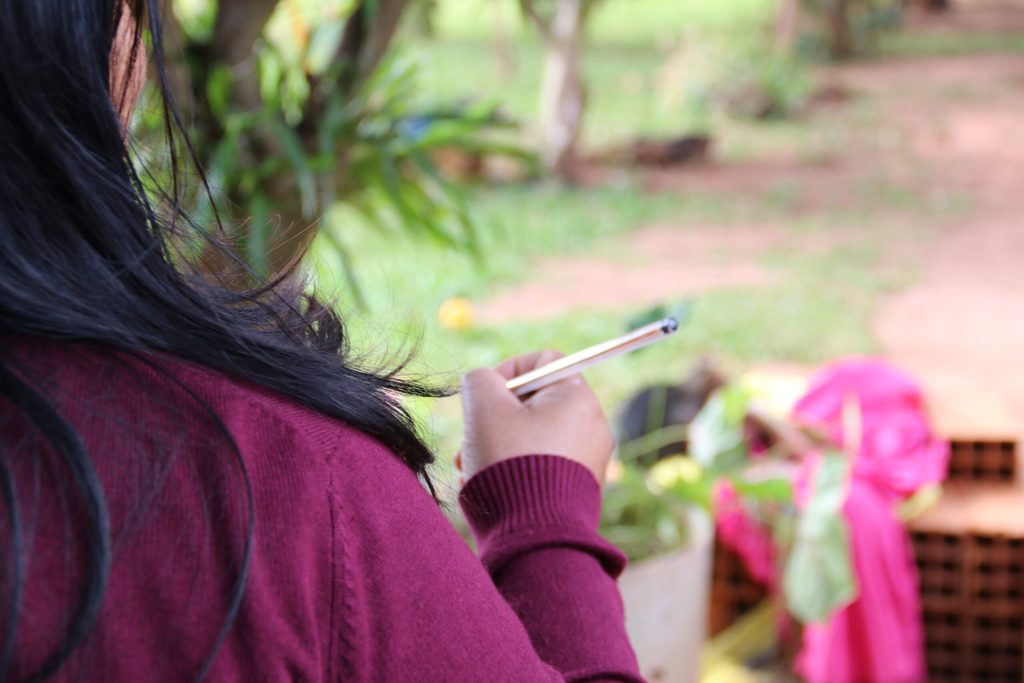
At the age of 10, Ana* had to leave her indigenous community in San Pedro department for the first time. Her parents separated, and she was sent to live with a family in the capital city Asunción, some 200km away. There, Ana was expected to do domestic work for the family in exchange for her board and lodging, a common practice in Paraguay known as ‘criadazgo’.
“In the house, there were bedrooms, but I didn’t sleep there. They made a bed of old clothes on a little bench, and I slept on that in a hallway” shares Ana. The young girl was expected to get up early in the morning to prepare breakfast for the 6 family members, then wash the dishes. After returning from school, she was tasked with doing all the cleaning.
Although illegal, criadazgo is a culturally accepted practice in Paraguay, whereby children, generally from poor families, work without pay for wealthier ones. It’s a modern form of slavery that affects children ranging from 5 to 17 years old, depriving them of their rights, forcing them to work long hours and putting them at risk of sexual and physical abuse.
“I chose the teaching profession so I could help children from indigenous communities and prevent them from facing the same difficulties that I experienced in childhood.”
Ana
Ana was lucky and the family she worked for allowed her to continue her education, but she found it hard to get used to learning in Spanish instead of the Guarani language she had grown up speaking. “The first 4 months were difficult. I didn’t talk to anyone because I didn’t know how to speak Spanish. A teacher helped me with my exercises, translating them into Guarani for me, and then I learnt Spanish on my own. The other kids made fun of me, but that didn’t affect me. I just wanted to finish the sixth grade.”
Eventually Ana was allowed to return to her community, but her mother was unable to support her. She moved frequently, sometimes living with her mother, and other times with relatives. Wherever she went, she managed to find a way to continue her studies and progress as much as possible with her education.
False promises
Although this nomadic lifestyle presented Ana with many challenges, poverty meant there were few other options. “One day, an uncle came to the community where we were living at that time, in Luque, and offered to take me to a community in Alto Paraná to teach in an indigenous school. My mother and I, hopeful for the opportunity, decided to trust that I would be well cared for because I was part of the family. But we were lied to.”
Once in Alto Paraná, Ana realised that her uncle’s promises of a job were untrue, worse still she was told that she had been sold to an older man. At the age of 17, Ana was handed over to a 38-year-old man who kept her captive in a house on a ranch. She had no way to communicate with her mother, no way of escaping, and no one to turn to.
During this time she was physically, sexually and psychologically abused, and had 2 children as a result of rape. After 2 years, she was able to convince the man to leave the ranch and move to an indigenous community where she knew some of her family lived. She arrived with her captor, 2 children, and a third on the way. Once under the protection of the indigenous community, she managed to make her aunts aware of her situation and they helped her to escape. “Sometimes, I couldn’t sleep because of the psychological abuse” shares Ana. “I think that’s the worst. It’s the worst thing a person can go through. And you have to be very strong to get out of that.”
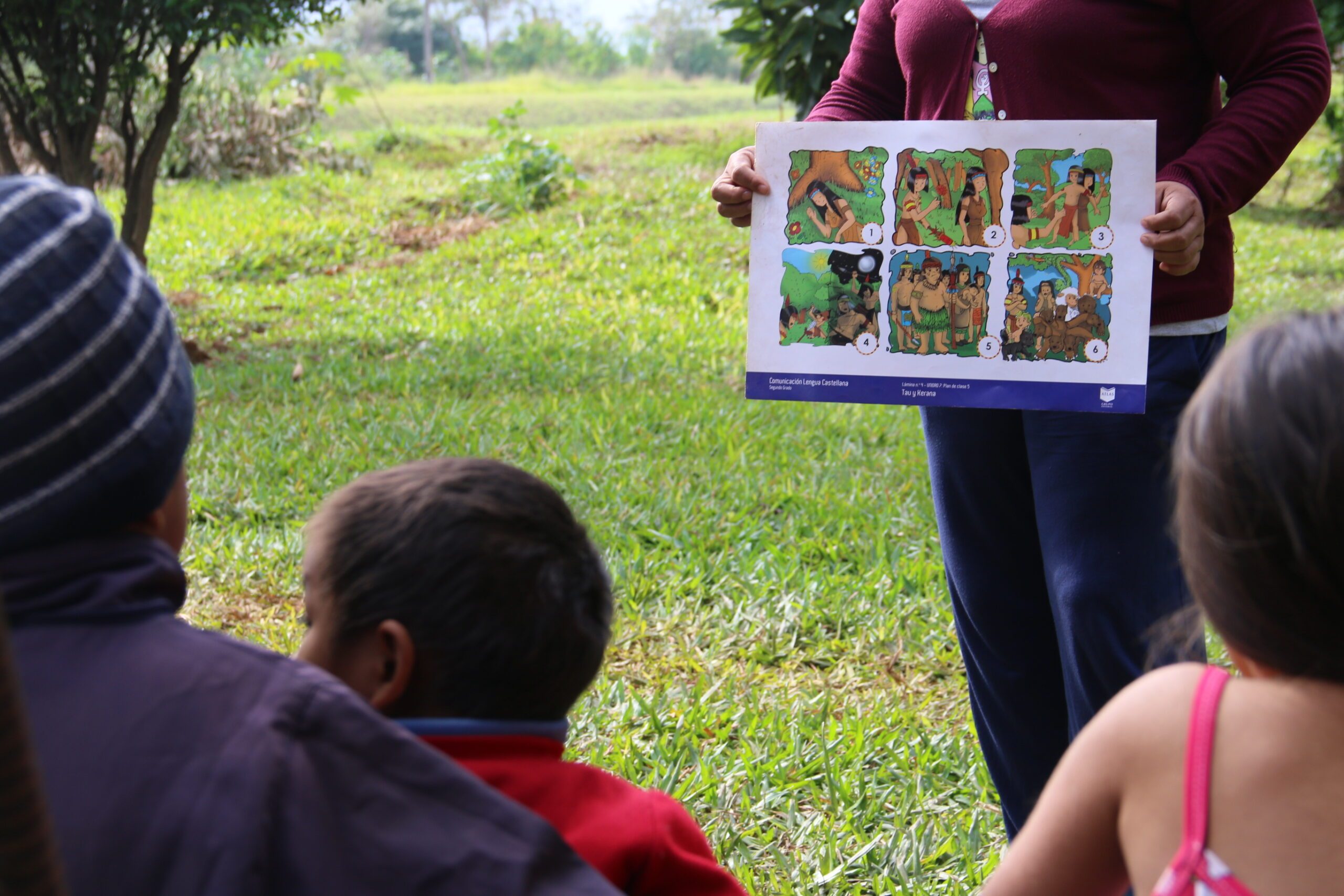
Thanks to her family and the community’s support, Ana was able to return to education. After completing high school she went to college and now, aged 42, she is a director at an indigenous school which allows her to support her children and her mother. “I chose the teaching profession so I could help children from indigenous communities and prevent them from facing the same difficulties that I experienced in childhood,” she concludes.
Overcoming adversities
In Paraguay, indigenous communities face multiple violations of their rights such as eviction from their lands, limited access to basic services, and the loss of their customs and culture. About 66% of Paraguay’s indigenous people live in poverty, and 34% percent live in poverty, three times the national level.
Currently, Ana’s daughter participates in Plan International’s Leadership School, which aims to empower the leadership skills of girls, adolescents, and young people living in rural areas, helping them create positive changes in their own communities that work towards preventing the reoccurrence of narratives like Ana’s.
Plan International works in communities like Ana’s, implementing development projects with a comprehensive and participatory approach to improve the living conditions of indigenous people. These initiatives not only address immediate challenges, but also aim to break cycles of abuse and inequality, to achieve gender equal and violence-free societies.
*Name has been changed to protect identity
